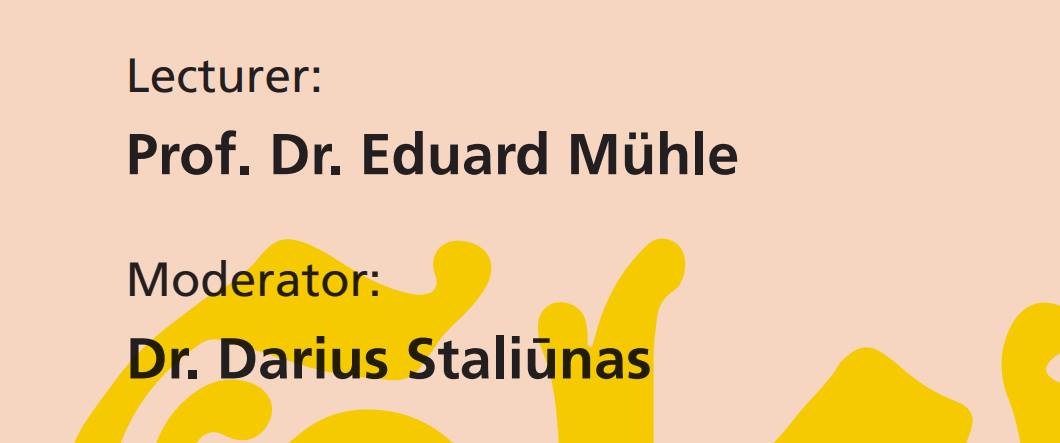 18 November | 17:00 University of Vilnius Faculty of History Room 211, Universiteto g. 7
18 November | 17:00 University of Vilnius Faculty of History Room 211, Universiteto g. 7
All those attending the lecture will be asked to present a valid National Certificate (Galimybių pasas)
In the 19th and early 20th centuries Slavic-speaking nations strove for cultural and political emancipation. To this end they referred inter alia to the idea of an all-Slavic community, thus developing a particular “Slavic idea”. In practice none of the attempts at forming a “Slavic identity” and “Slavic community”, however, ever had anything other in mind than particularistic objectives. Thus, the modern elitist discourse on Slavdom and Slavic community was thoroughly doomed to failure from the very start; at best, the “Slavic idea” within the Slavic-speaking world of the 19th and 20th centuries was of some periodical and limited impact. But it took on, apparently, a much greater power in its reversal, that is, as a conglomerate of anti-Slavic ideas, as created and propagated by non-Slavic Europeans. In any event, the notion of a coherent and united “Slavdom”, the idea of a particular “Slavic character” more than complied with the Western, especially with the German, external view of the “world of the Slavs” in its deep conviction of a supposed Romano-Germanic cultural superiority from at least the middle of the 19th century up until the mid-20th century. Against this backdrop the lecture will take a closer look at how the perception of the Slavic world developed within German political and cultural thought, what sort of “Slavic ideas” the Germans developed and used for which ends during modern times.
Eduard Mühle is professor of East Central and Eastern European History at Westfälische Wilhelms-University of Münster and a Foreign Member of the Polish Academy of Arts and Sciences. 1995-2005 he was director of the Herder-Institute for Historical Research on East Central Europe in Marburg and 2008-2013 director of the German Historical Institute in Warsaw. He was a Guest Professor and Senior Visiting Fellow at St. Antony’s College in Oxford, at Wolfson College in Cambridge and a Member of the Institute for Advanced Studies in Princeton. Currently he is working as a Fellow-in-Residence of the German Historical Institute Warsaw in Prague. He has published widely on a broad variety of topics of medieval and modern East Central and Eastern European History. His most recent monograph offers a new interpretation of the Slavs in the Middle Ages, which was published in German in 2020, in Polish in 2021 and is currently prepared for a Czech and English edition.
